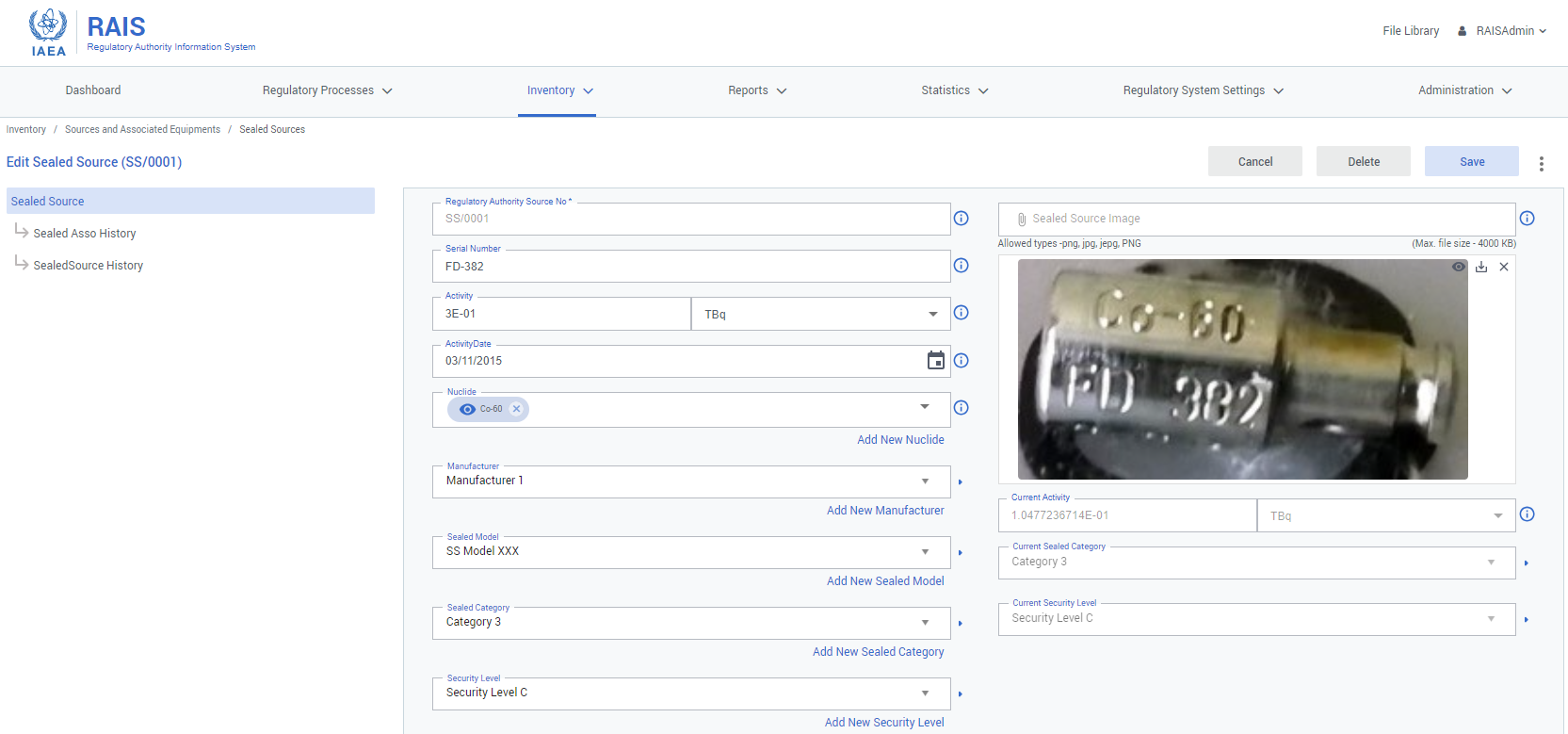The IAEA has released a new state-of-the-art Regulatory Authority Information System (RAIS+) to assist countries in their core regulatory functions to manage radioactive sources. RAIS+ was presented in the margins of the 67th IAEA General Conference last month. It will support regulators to establish and maintain a national register of sources and other safety and security records, across a range of nuclear science and technology applications in industry, medicine, research, agriculture and education.
"RAIS+ is a step forward in assisting States in their regulatory activities to ensure the safe and secure management of radiation sources throughout their entire life cycle, from manufacturing to disposal, in accordance with the IAEA safety standards and nuclear security guidance," said Hilaire Mansoux, Head of the Regulatory Infrastructure and Transport Safety Section at the IAEA.
RAIS+ is highly customizable and can be adapted to each country's legal and regulatory frameworks and administrative structures, while supporting a consistent and harmonized international approach to the regulatory control of radiation sources. It offers many tools to search, organize and report regulatory data, and users need only basic technical skills to create digital workflow processes for notification, authorization, inspection and enforcement and other regulatory activities.
Data can easily be migrated from other information systems to RAIS+, which has been developed based on user experience and feedback on the original system RAIS, which the IAEA first made available in the late 1990s. More than 100 countries are using or were considering using RAIS at the end of 2022, and the IAEA aims for all current and prospective RAIS users to switch to RAIS+ by the end of 2025.
The role of RAIS+ in the regulatory framework
Nuclear facility workers who handle radiation sources can use RAIS+ to submit data to their regulatory body for review and assessment at all stages of radiation sources management including import, export, usage and disposal. For instance, a medical facility importing a radioactive source can save and share information with the regulatory body, such as the source type, its serial number and purpose, to have its activity approved or to obtain a licence.

Facilities handling radioactive sources can record information on the sources and submit it to their national regulator for verification and approval in the new RAIS+ system.
Nuclear facility workers who handle radiation sources can use RAIS+ to submit data to their regulatory body for review and assessment at all stages of radiation sources management including import, export, usage and disposal. For instance, a medical facility importing a radioactive source can save and share information with the regulatory body, such as the source type, its serial number and purpose, to have its activity approved or to obtain a licence.
This new tool will assist States in managing their regulatory control programmes in accordance with IAEA Safety Standards and the IAEA Code of Conduct on the Safety and Security of Radioactive Sources, a legally non-binding instrument providing recommendations on how to ensure the safety and security of radioactive sources for which 149 IAEA Member States have expressed support, and its supplementary Guidance on the Import and Export of Radioactive Sources and Guidance on the Management of Disused Radioactive Sources.
"When sources are outside effective control mechanisms and of their intended use, they can pose safety and security risks. RAIS+ will assist States in ensuring the safety and security of radioactive sources," said Mansoux.
Prior to its official launch, RAIS+ has been piloted in selected IAEA Member States and has undergone testing against computer security threats. It has been trialled in Africa, Asia, Europe, Latin and Central America and the Caribbean through workshops and expert missions.






